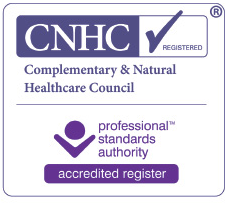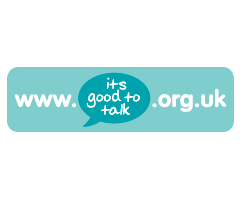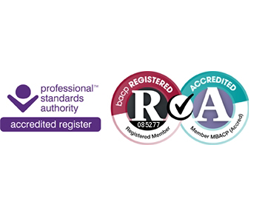 10th July 2015
10th July 2015
Major negative experiences in childhood or adult life can shake your core beliefs and cause them to change. This will normally happen over time and you might not realise at first that your self-esteem is being lowered. Experiences that commonly impact on people’s self-beliefs (self-esteem) include:
- being subject to abuse – sexual, emotional or physical, and the loss of control associated with this
- having your physical and emotional needs neglected in childhood failing to meet the expectations of your parents
- feeling like the ‘odd one out’ at school coming from a community which often experiences prejudice, such as being an asylum seeker, or being poor but living in a wealthy neighbourhood
- peer pressure to conform to social norms which you don’t agree with
- bullying or excessive pressures at work
- trauma (trauma is defined as a situation you believe was life threatening)
- physical ill-health – its impact on your quality of life and activities
- bereavement
- redundancy or being unemployed
- Social isolation and loneliness.
Other situations may remind you of these experiences. You will probably feel anxious and might shake, blush and feel panicky, nauseous , or experience a feeling of having cold clammy skin) this obviously increases your fear and you may experience intrusive thoughts about the new situation, where you expect the worst and are likely to react badly. Your low expectations are likely to be at the back of your mind all the time.
You may also try to avoid the situation all together, or behave in a way that you think will keep you ‘safe’, e.g. not going to a social event on your own, not driving or not going to work.
This may seem like a sensible idea, but it is likely to confirm the negative core beliefs you have about yourself and leave you feeling you have even less chance of coping with a similar situation in the future, and it may restrict your enjoyment of life.
These cycles seems unbreakable, but remember that these are beliefs, not facts, and they can be changed.
What can I do to build my self-esteem?
Your self-esteem comes from your beliefs about your value as a person. If you want to increase your self-esteem you need to challenge and change these beliefs. This might seem like an impossible task, but there are a lot of different ways that you can do this some ideas are set out below.
Identify your negative beliefs
If you are going to improve your self-esteem, it is important to understand a little bit about what your core negative beliefs are and where they came from. This could be a painful process, so it is important to take your time, and perhaps ask a friend or partner to support you. If you are feeling very distressed, then it might be better to seek professional help – from a counsellor or therapist.
It might be helpful to write down your thoughts about the following:-
- What do you feel are your weaknesses or failings?
- What negative things do you think other people think about you?
- If you could sum yourself up, what word would you use – ‘I am…’?
- When did you start feeling like this?
- Can you identify an experience or event that might have caused this feeling?
- Do certain negative thoughts recur on a regular basis?
It might be also helpful to keep a thought diary or record over a period of several weeks. Write down details of situations, how you felt and what you think the underlying belief was. For example:
| Situation | Reaction | Underlying belief |
| Asking to deliver presentation at work | Feel very anxious but told boss it was fine | I will mumble or make a fool of myself or no-one will want to listen to me because i'm not interesting or funny. |
| I was invited to a party | I liked ans said I had something else to do | I can't say anything interesting and look stupid dressed up - will end up stood around on my own. |
| I cannot drive on motorways | I will go but using smaller A roads or I will not go | I will get panicky and do something stupid and cause an accident |
As you begin to find out what your core beliefs are, and where they come from, you can begin to challenge and change them. One way you can do this is to write down evidence to challenge each belief and begin to explore other explanations of a situation. For example, if you think that no-one likes you, you can start to record situations that show a different pattern:
Examples :-
- My mum called me on my birthday.
- My brother didn’t answer my call, but then later told me he had been really busy at work – it wasn’t personal.
- I have been asked to go to a friend’s wedding next summer.
- I had a really nice conversation with my colleague over our coffee-break.
These might feel like small examples, but as your list gets longer over time you can look back at it and challenge the negative opinions that you have been holding on to. You might find it difficult to give as much importance to the positives as you do the negatives. At first you might even find it difficult to remember the positives.
Another activity you might find useful is to create “lifeline” drawing a horizontal line across a large sheet of paper .. and recording all the events in your life from your first memory until the present day. Put all the positive events above the line and all the negative events below the line.
This gives you evidence of the positive things that you have been part of.
These 10 ideas can be really helpful to keep you positive and engaged in boosting your self-esteem:
Ten tops tips
- Stop comparing yourself to other people.
- Don’t put yourself down.
- Get into the habit of thinking and saying positive things about yourself to yourself.
- Accept compliments.
- Use self-help books and websites to help you change your beliefs.
- Spend time with positive supportive people.
- Acknowledge your positive qualities and things you are good at.
- Be assertive, don’t allow people to treat you with a lack of respect.
- Realise you are worthy of consideration from others.
- Do not automatically change your opinion to “fit in” with others – your opinion is equally valid.







